David Stairs
I’ve written the past couple of summers about Portland, Oregon and its environmentally-friendly culture. I visited my family again last month, as I normally do in July, just in time for the unveiling of a major new corporate/municipal project. On July 19th Portland launched the Biketown bicycle-share initiative. With a fleet of Dutch-designed bikes, and a system of around 100 rental stations, Portland joined the ranks of cities like New York, in pursuit of the notion of universal car-free mobility.
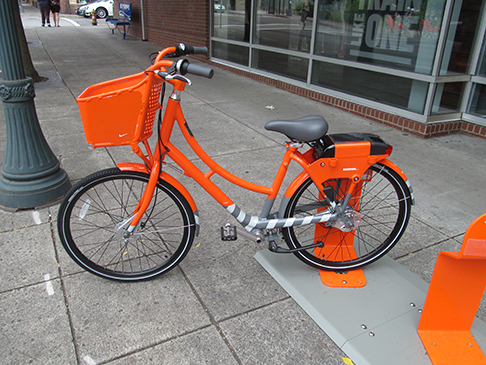
A Biketown bike locked outside the Niketown store on MLK Boulevard in Portland
Portland, which happens to consider itself America’s biking capital, is a bit of a late-comer to this idea. Over 600 cities worldwide, dozens of college campuses, and especially European communities, have been doing similar things for, well, ages now. The Portland program might not have happened at all, either, if Nike had not stepped in with a $10 million donation, which gets the company a nice public relations bump.
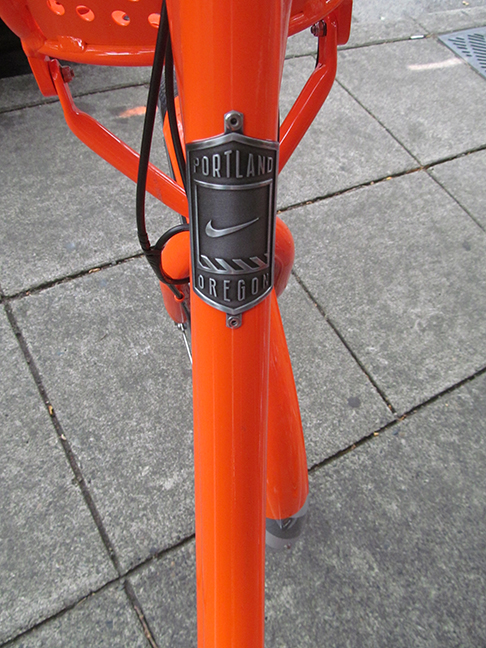
The melding of corporate and municipal interests
At 59 pounds the bright orange bikes (Nike’s marketing color) are a bit heavy, but this weight includes a totally loaded on-board solar-powered computer with GPS, a capacious front basket, a U-lock, and a bomb-proof steel frame. Rental rates start at $2.50/hour and go all the way to $12.00/day.

Solar-powered computer with GPS
Old Town Portland has an abundance of rental stations in the flats below the West Hills, and booming Southeast Portland is also pretty well represented, but north Portland, where lower income people cluster is less well provided for.
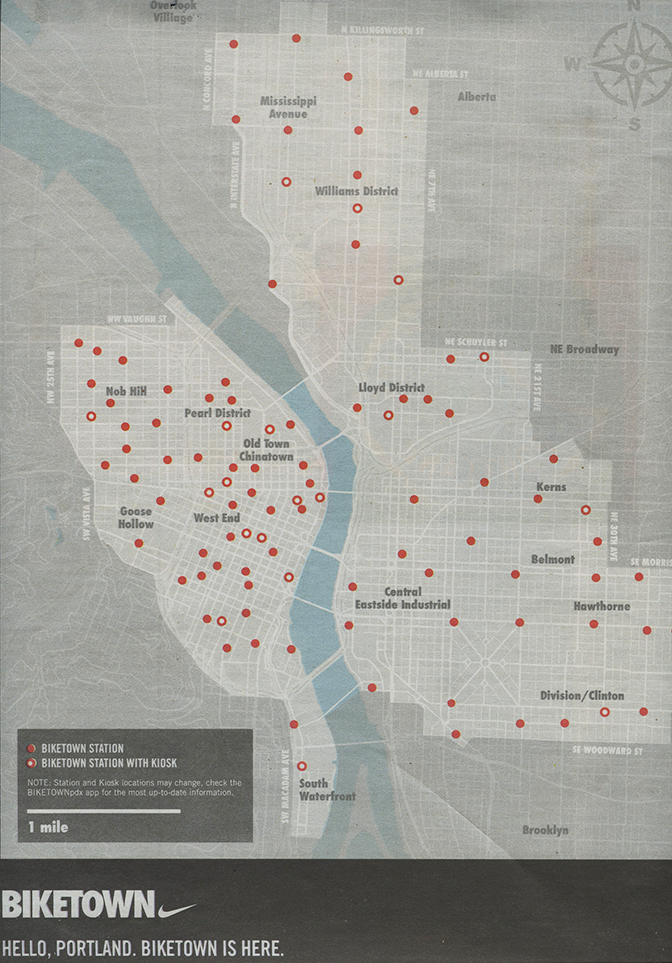
Biketown station map published in the Portland Mercury
Some people have complained about the loss of parking spaces, or other bike storage units, while others are not happy with the ubiquitous display of the swoosh. But in fact, around the world many bike-share programs do have corporate sponsorship. In a country with so little emphasis on public programs and so much obsession with corporate endorsement, it seems inevitable that a project that attempts to change attitudes about transport infrastructure would have to be a collaboration between government and the private sector.
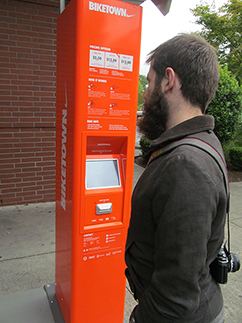
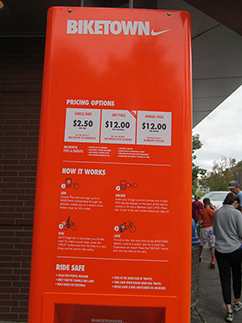
Payment station We’ll watch with interest to see if the Biketown initiative expands Portlander’s enthusiasm for two-wheeled transport, or languishes in the realm of tourist attraction.
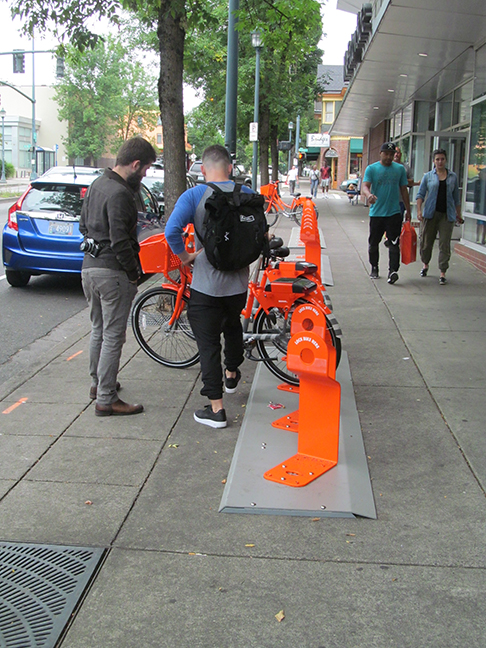 Note the orange branded Nike bag carried by the pedestrian at right.
Note the orange branded Nike bag carried by the pedestrian at right.
David Stairs is the founding editor of the Design-Altruism-Project

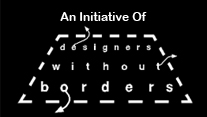




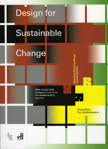




Leave a Reply
You must be logged in to post a comment.